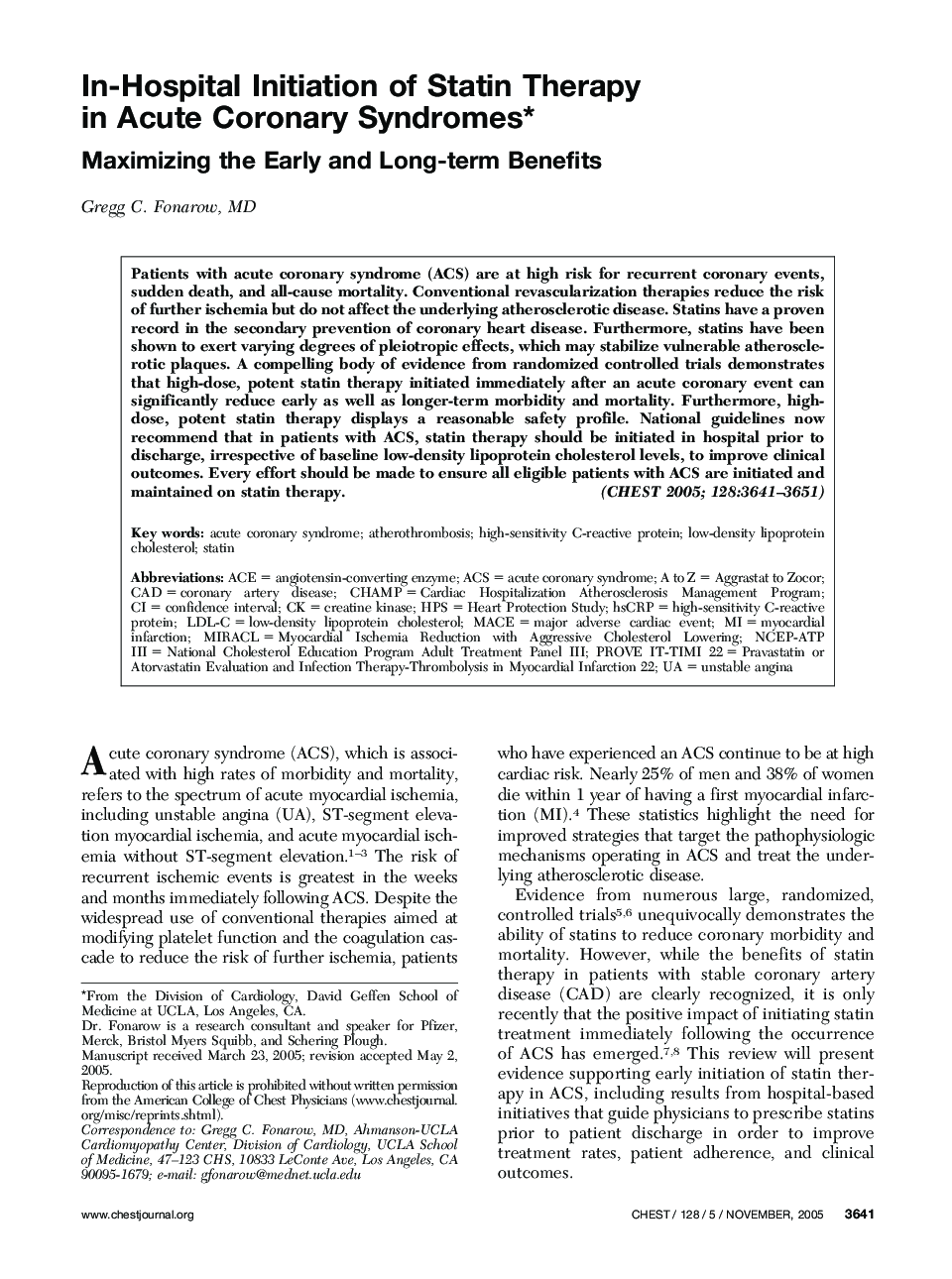| Article ID | Journal | Published Year | Pages | File Type |
|---|---|---|---|---|
| 2906114 | Chest | 2005 | 11 Pages |
Patients with acute coronary syndrome (ACS) are at high risk for recurrent coronary events, sudden death, and all-cause mortality. Conventional revascularization therapies reduce the risk of further ischemia but do not affect the underlying atherosclerotic disease. Statins have a proven record in the secondary prevention of coronary heart disease. Furthermore, statins have been shown to exert varying degrees of pleiotropic effects, which may stabilize vulnerable atherosclerotic plaques. A compelling body of evidence from randomized controlled trials demonstrates that high-dose, potent statin therapy initiated immediately after an acute coronary event can significantly reduce early as well as longer-term morbidity and mortality. Furthermore, high-dose, potent statin therapy displays a reasonable safety profile. National guidelines now recommend that in patients with ACS, statin therapy should be initiated in hospital prior to discharge, irrespective of baseline low-density lipoprotein cholesterol levels, to improve clinical outcomes. Every effort should be made to ensure all eligible patients with ACS are initiated and maintained on statin therapy.
